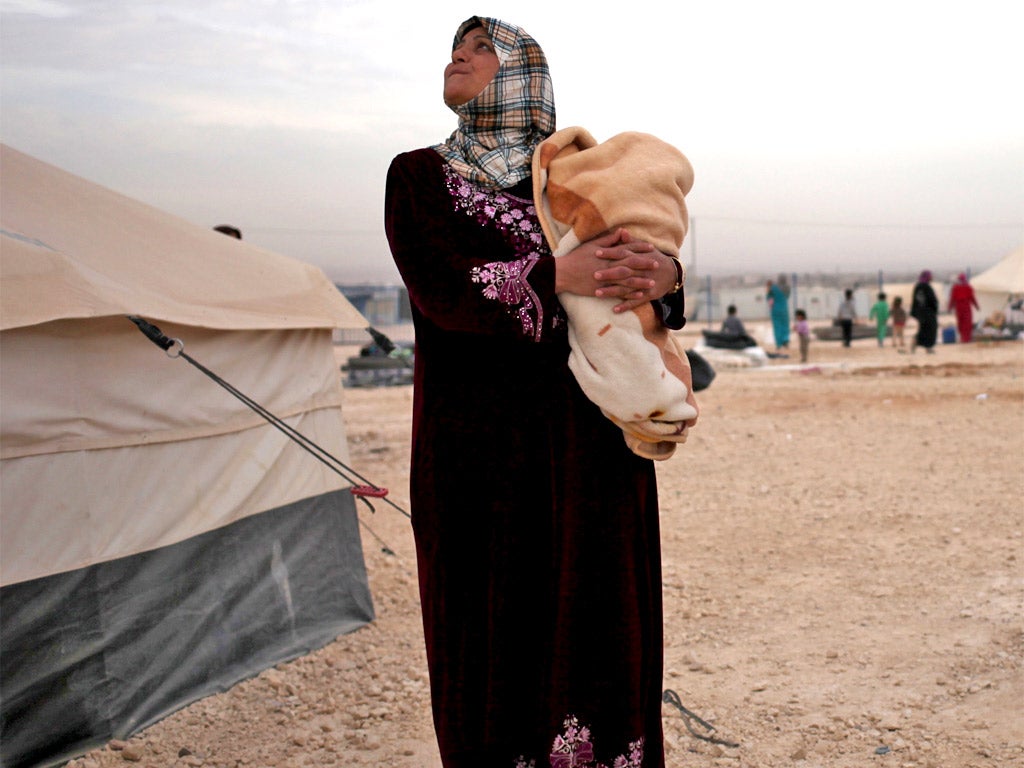Exclusive: Foreign doctors raise alarm over Syrian birth defects
The newly appointed International President of Médecins Sans Frontières has described the number of birth deformities as 'shocking'

Your support helps us to tell the story
From reproductive rights to climate change to Big Tech, The Independent is on the ground when the story is developing. Whether it's investigating the financials of Elon Musk's pro-Trump PAC or producing our latest documentary, 'The A Word', which shines a light on the American women fighting for reproductive rights, we know how important it is to parse out the facts from the messaging.
At such a critical moment in US history, we need reporters on the ground. Your donation allows us to keep sending journalists to speak to both sides of the story.
The Independent is trusted by Americans across the entire political spectrum. And unlike many other quality news outlets, we choose not to lock Americans out of our reporting and analysis with paywalls. We believe quality journalism should be available to everyone, paid for by those who can afford it.
Your support makes all the difference.Doctors working inside Syria are witnessing a “shocking” number of babies being born with severe deformities - a result of the collapse of the war-torn country's healthcare system.
The cases of Anencephaly - a condition which causes babies to be born without a major portion of the brain, skull and scalp - have been documented in the north of the country, an area in which antenatal care has virtually ceased to exist.
In most cases the baby dies immediately after birth, or is stillborn. The large number of cases witnessed in northern Syria is thought have been caused a lack of availability of folic acid - a supplement available to pregnant women across the world that helps prevent the condition.
The deformities and many other horrific injuries sustained as a result of the war were witnessed by Joanne Liu, the newly appointed International President of Médecins Sans Frontières (MSF), who left Syria last week after spending ten days working in a field hospital in the country.
Dr Liu took up her role as head of the organisation in October, and last month travelled to Syria to get first-hand experience of the conditions in which her staff worked. Due to the sensitivity of her mission, only the international staff working alongside her in the hospital knew of her position as head of the charity.
Working out of field hospital just kilometres from the frontline, Dr Liu witnessed high numbers of severe injuries to civilians and medical conditions symptomatic of a non-existent healthcare system.
In less than two weeks, she saw three babies with Anencephaly - two of which were alive when they were born, but later died. The third baby wall stillborn.
“We saw so many cases of babies born with malformations, and cases of Anencephaly. Some babies were born without heads,” she told The Independent. “I was trained as a paediatrician and have never seen anything this severe in my 20 years in practise.”
Médecins Sans Frontières is one of only a handful of aid agencies working in northern Syria - many are now staying away because of the perilous conditions and the risk of kidnap from extremist groups. The charity runs six field hospitals across the country, treating predominantly civilians who have been caught up in the fighting.
At the hospital, a former apartment building that has been transformed into a medical facility, Dr Liu treated pregnant women and children who were injured in airstrikes - further proof that the Syrian government is indiscriminately targeting civilian areas as it battles with rebels fighting to remove him from power.
“On one day we received two pregnant women. One had a shrapnel wound to the thorax. She was six months pregnant and when she came in she couldn't breathe. She had dangerously low oxygen levels in her blood. We treated her and she pulled through, but the next day her baby died,” Dr Liu said.
“Another pregnant lady came in 3 minutes later. She was screaming bloody murder. I couldn't figure out what was wrong with her until I finally saw a hole the size of a tennis ball in her ankle. The foot had to be amputated but fortunately her baby survived.”
“They were just going to the market. They were bystanders in the wrong place at the wrong time,” she added.
On one particularly bloody day during her stay, Dr Liu received a number of children suffering from severe burns - victims of a barrel bomb that was dropped on a nearby school by the Syrian airforce.
“They were suffering from severe burns - some of them covered by more than 40 per cent. We did our best to stabilise them but when the injuries are that severe we have to transfer them to a bigger facility. On this occasion on of the children died on the way,” Dr Liu said.
MSF has previously warned that the targeting of medical facilities has brought the country's healthcare system to the point of “collapse.”
In October, a UN rapporteur reported that “32 of the country's 88 public hospitals have closed because of the ongoing conflict, and government and pro-government forces have arbitrarily detained, tortured, and killed hundreds of health workers and patients.” But some estimate that the situation is much worse.
Commenting on the unusual nature of her assignment, Dr Liu said: “If I am going to send my staff there, I should be able to go there and see first-hand what they are up against.”
MSF is calling for the international community to work towards allowing aid agencies to access areas where fighting is taking place.
“When UN chemical weapons inspectors need to be transported through conflict zones they can make it happen. Why can't we do the same for humanitarian aid?”
Join our commenting forum
Join thought-provoking conversations, follow other Independent readers and see their replies
Comments